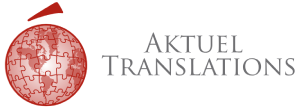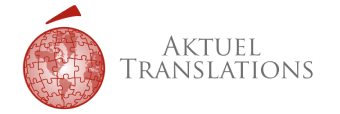You’ve had translations done before, you know how the system works – more or less – so you are aware translation is charged by volume (number of words, most commonly) and prices vary according to complexity, lead times and choice of language (very broadly).
This all seems rather basic – sorry I can’t dress this one up and make it more interesting. However in 25 years of running translation projects, I know that in 80% of cases, the above issues are either dealt with during a project, after the price has been agreed, which adds unnecessary delays and/or complications; or not dealt with at all.
However, the following points are about essential preparation. The idea is not just to get costs down: these will improve quality.
1. What is the translation for?
Is the text intended for purposes of general comprehension (correspondence, details of a bid), or does it have a marketing or legal function? Who is the target audience? All this helps when a choosing a translator and eases the proofing process. How in-depth should it be? What type of quality issues need to be looked at? The tone is very important for some texts, perhaps not translating word for word; anything printed needs to be triple-checked for typos; legal texts must be slavishly accurate to the original with no smiley faces.
2. Format
MS Word is king! Or any other editable format. Again, it cuts time preparing the translation but also costs (see point 3), so it is worth spending a bit of time hunting down an original file as opposed to using a scanned PDF. Plus, if the translator is over-typing, there is far less chance of figures, names etc. being mis-typed.
3. Previous translations, translation memories (‘TMs’)
If you have them, provide them. Clever software means that most agencies worth their salt can extract source and target material from previously translated texts and thereby harvest translation memories that save money and ensure consistency.
4. Glossaries and research material
Anything else you have that could be relevant. Send it over!
5. Provide a contact for technical questions
So many translations flounder on technical issues because the translator does not like to ask the one person who may be able to help, who is an expert, i.e. the client. If the client provides the agency with a contact for technical queries, this can make all the difference. However, a good translation agency will instruct their translator and proofreader to make an educated and informed choice about technical terms, state their reason for that choice and outline why they are still unsure (and any alternatives). Then it is not just a case of throwing everything back to the client.
Like anything, so much of what is important is in the preparation and sometimes in the rush to get a project started corners are cut. Thinking about the above points beforehand will save time (money) and make for better, more suitable material.
I hope it helps!
Robin
PS: If anyone out there thinks I’ve missed something, let me know, we could perhaps revisit later in the year and enhance this list.





Recent Comments